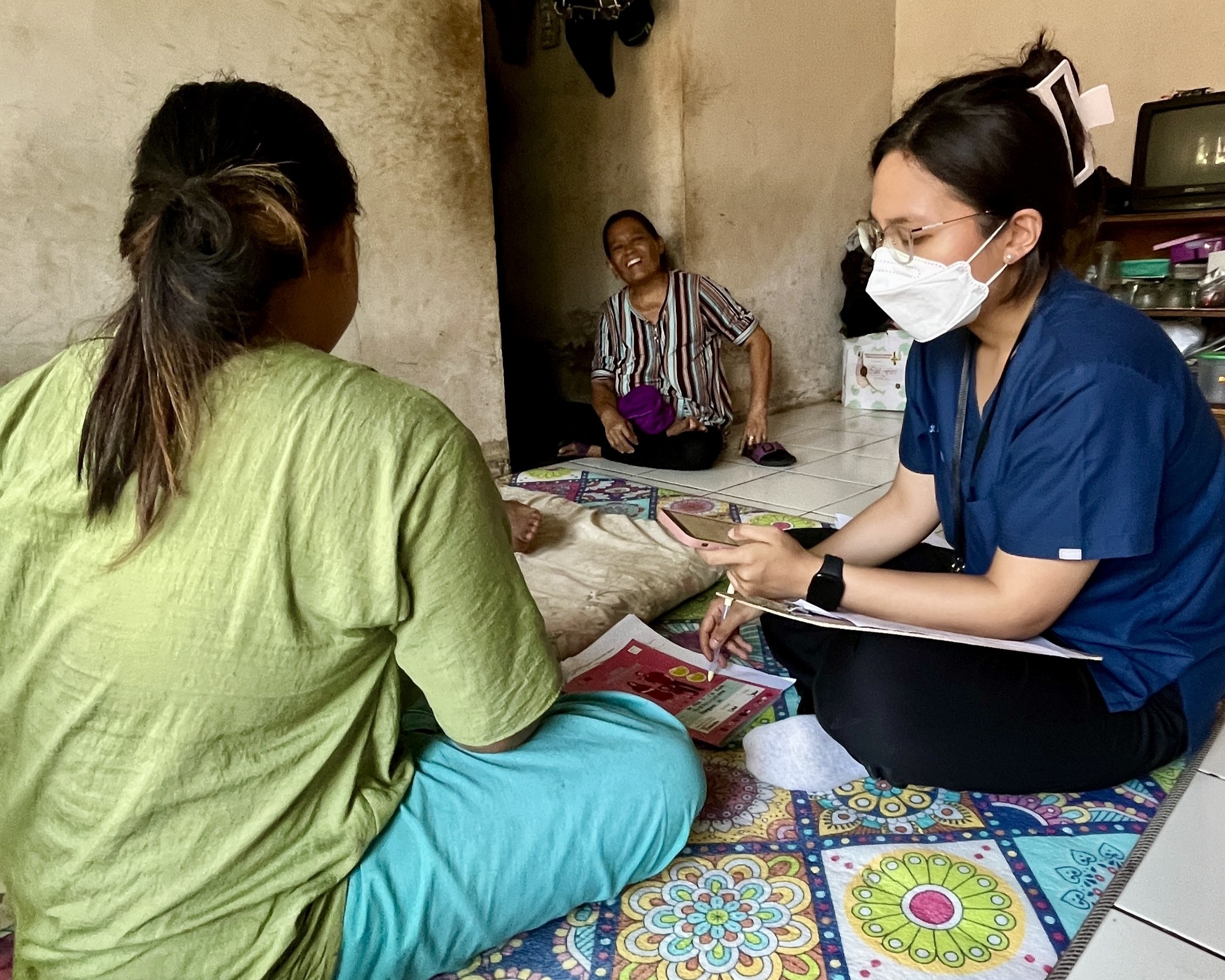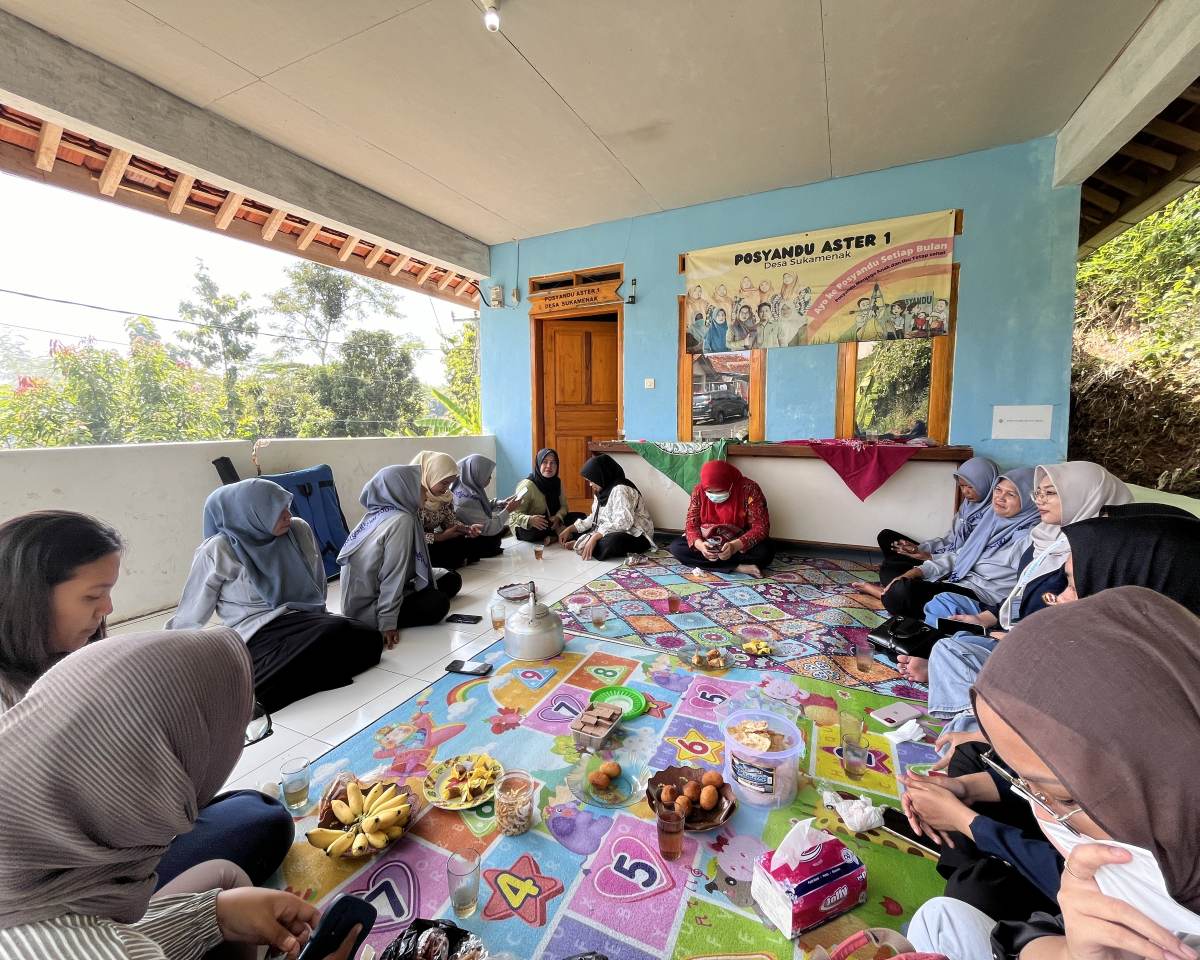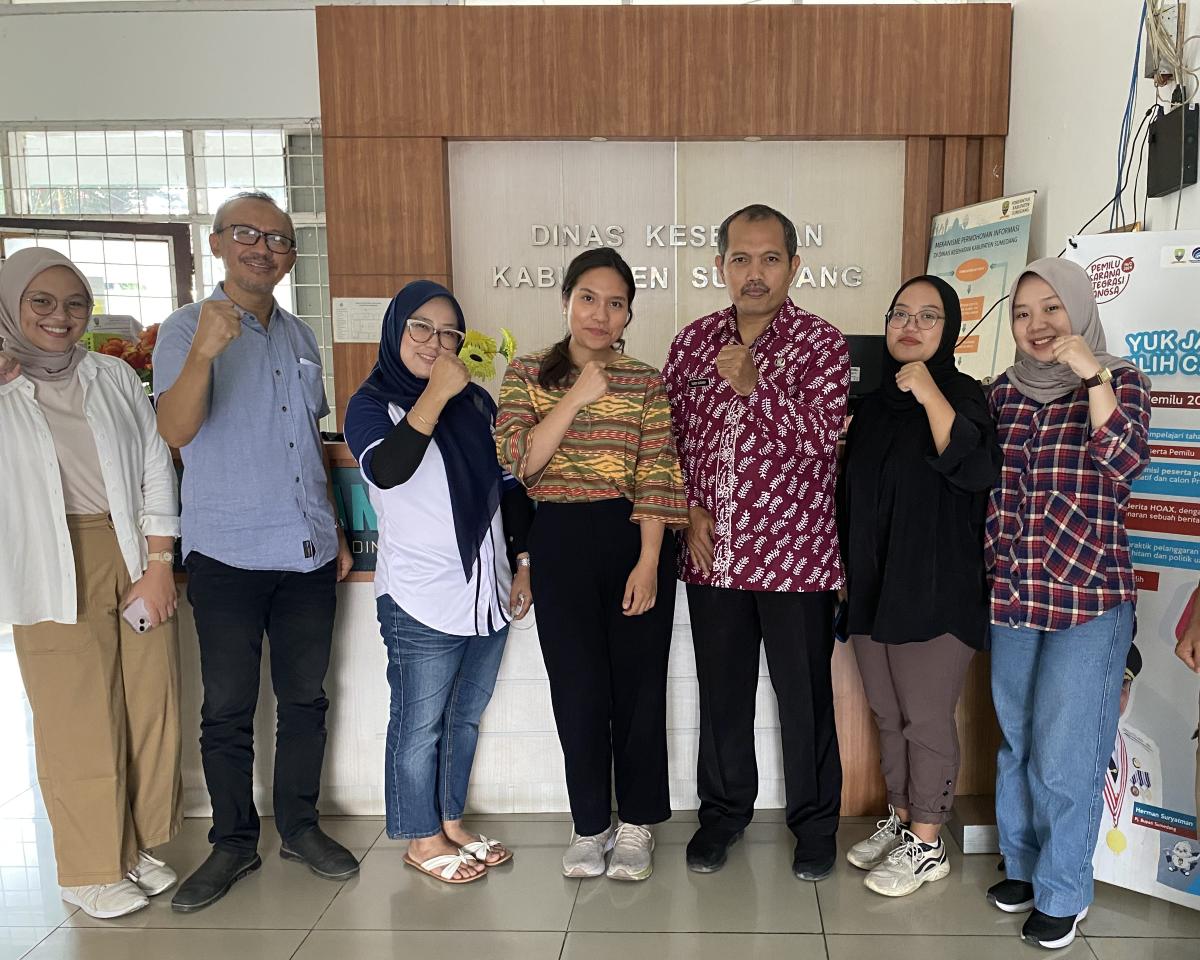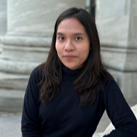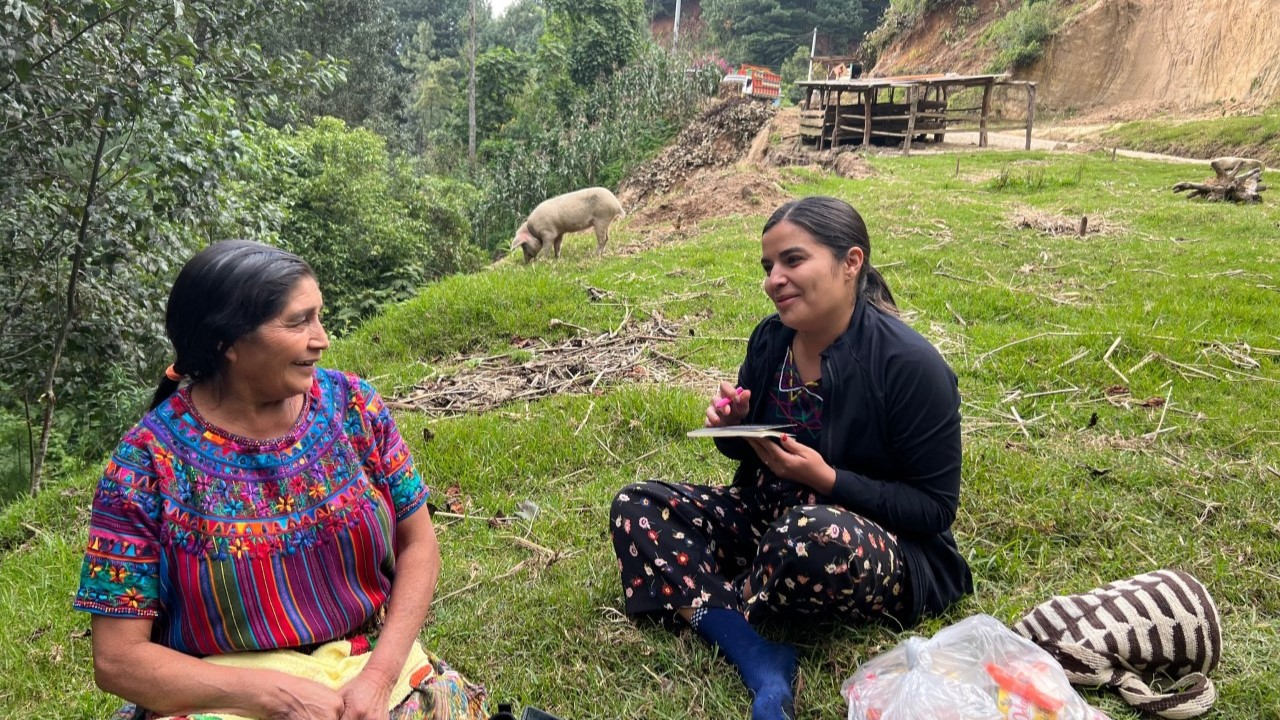During her fieldwork in Indonesia, Dwita conducted research on early childhood nutrition and maternal health, with a focus on the role of community health workers (cadres) in improving outcomes in rural areas. Her work was grounded in collaboration, empathy, and deep respect for the communities she served.
Dwita’s research took her across the hills and plantations of Sumedang, where she partnered with local cadres who often traveled by motorcycle to reach their assigned villages. One of her favorite images captured a cadre in a white uniform navigating the rugged landscape, an everyday journey that spoke volumes about the persistence and dedication of these frontline health workers. “Despite the challenges,” she noted, “they approach their work with unwavering passion.”
In the early days of data collection, Dwita met a participant whose warmth and openness transformed their interview into a meaningful conversation. The mother held a Buku KIA, a child and maternal health handbook required of all mothers in Indonesia. The encounter set the tone for Dwita’s research, which centered not only on collecting data but also on building relationships and trust.
Many of Dwita’s visits took her into the homes of families facing difficult conditions. In the village of Padasuka, she met a family whose child had been diagnosed with weight faltering. The parents, without steady employment, lived in a modest home built from thin wooden panels and bamboo, leaving them vulnerable during the rainy season. With the ongoing support of local cadres, the child showed significant improvements in both weight and height by June. These stories reminded Dwita of the powerful impact community-based care can have, even in the most resource-limited settings.
Dwita’s work often blended clinical observation with cultural understanding. In one home, she witnessed a multigenerational moment of care—a mother guiding her daughter, now a mother herself, during an interview. “It was a beautiful reminder,” she said, “of how maternal care continues across generations.”
While many visits occurred in family homes, some participants preferred to gather at community locations like the Balai Desa (village hall). Here, Dwita and her team conducted interviews, offered in-kind incentives, and facilitated an environment that respected participant dignity and autonomy.
Her research was made possible through the collaboration of a dedicated team of research assistants—Devi, Shelia, and Della—who traveled with her from village to village with anthropometric tools and informed consent forms in hand. They worked across several catchment areas, including the Darmaraja Health Center, bringing technical skill and cultural fluency to each interaction.
On the final day of her study, Dwita visited Posyandu Aster 1, an integrated village health post where monthly child growth monitoring takes place. It was a fitting closing moment: a place that represents the frontline of preventive health care and the community-based spirit that defined her entire project.
Working closely with the Sumedang District Health Office, Dwita learned the importance of listening, adapting, and approaching public health with humility. “Collaboration,” she reflected, “was the most important part of this research.” Through open dialogue with government officials, cadres, and families, she learned to embrace feedback and remain receptive to new possibilities.
